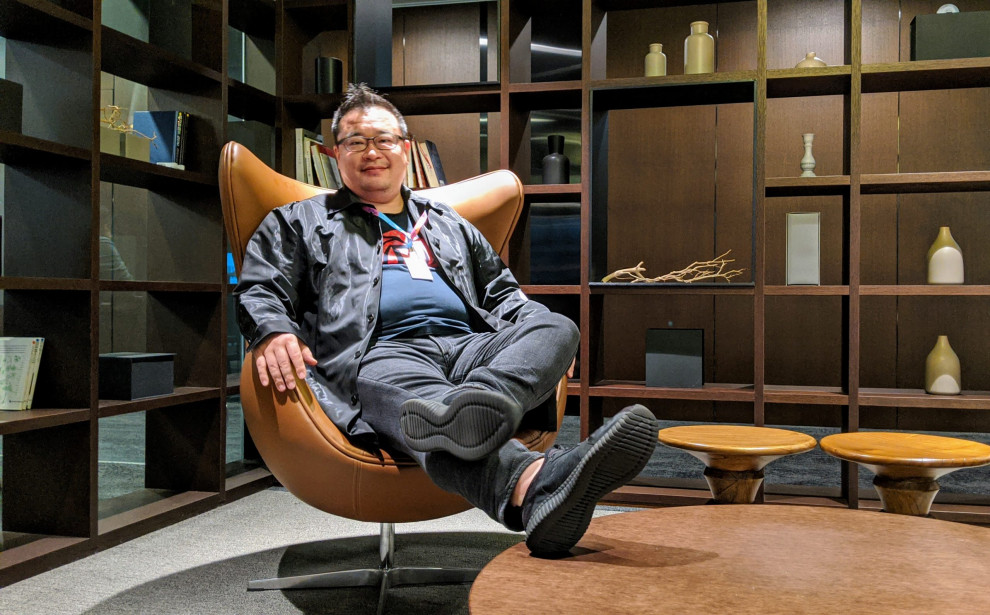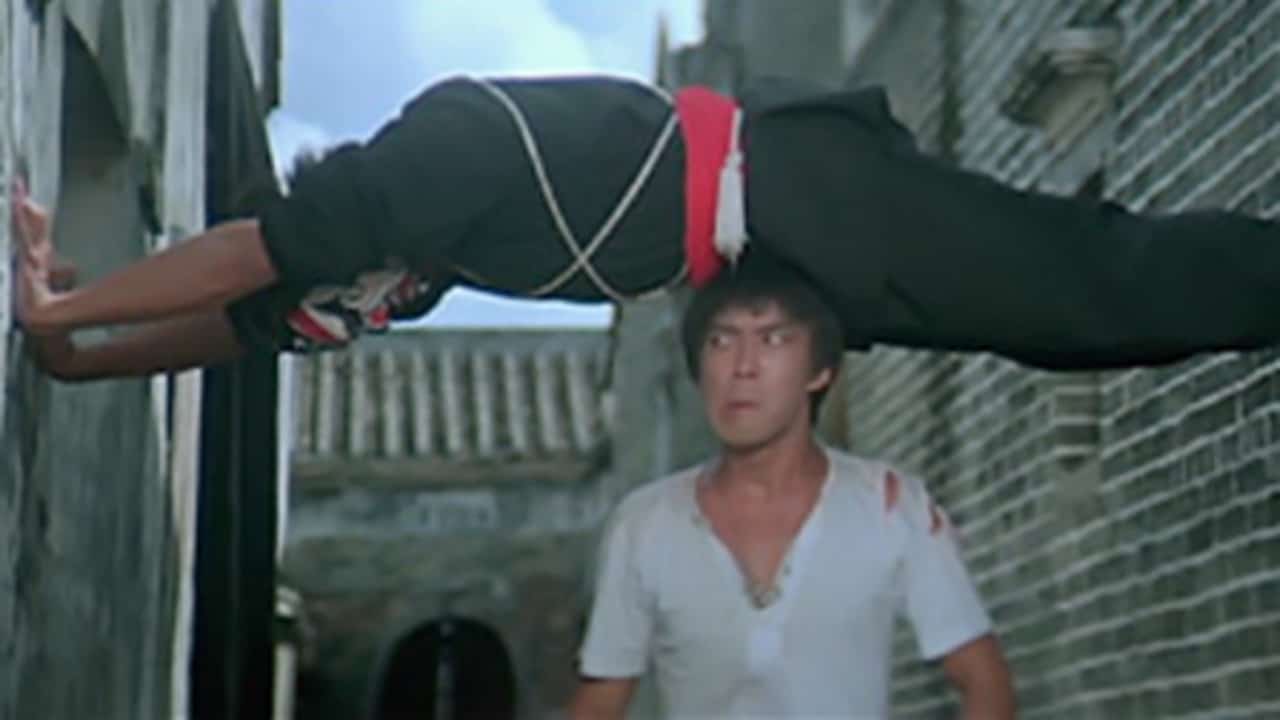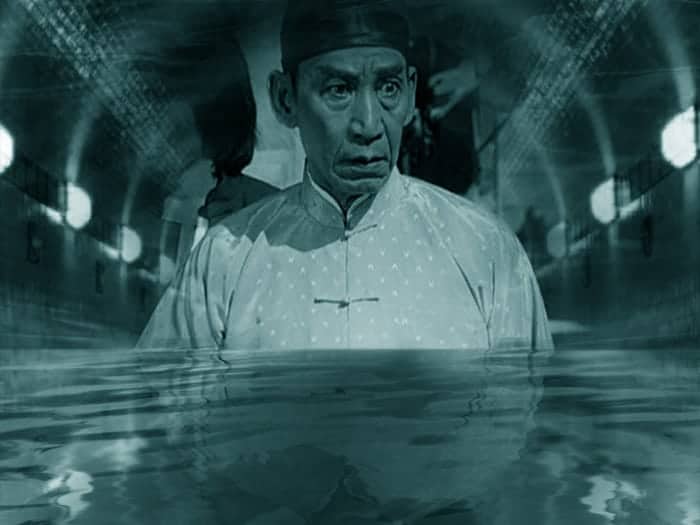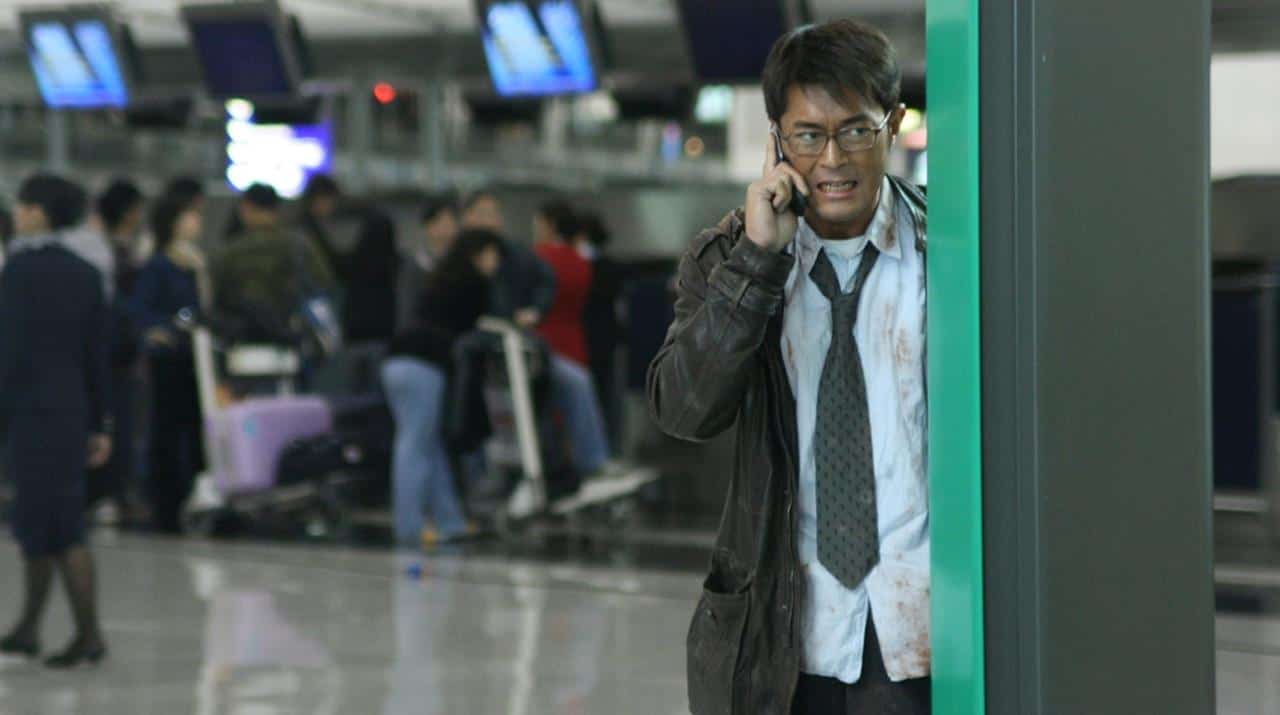A best-selling novelist, a reporter, and a literary agent walk into a steampunk bar. The agent asks for the novelist's number. The reporter asks for her sex tapes. And the novelist – well – asks for another drink, only to find herself beside a lesbian who bestows upon her a gift to remember. So begins “Fallen,” Lee Jung-sub's time-travelling, multi-dimensional science fiction entry for the Bucheon Choice Award at Bucheon International Fantastic Film Festival (BIFAN).
“Fallen” is not Lee Jung-sub's first film; the industry insider has written for and produced films for twenty years, including “Rikidozan: A Hero Extraordinary” (2004), “Lost In Love” (2006), “The Perfect Couple” (2007), “Romantic Island” (2008). “Fallen” marks his only his first directed feature, however, and has already won the Jury Special Mention Award at the 2020 Fantosporto International Film Festival.
During BIFAN, we take the time to visit the glass-and-steel office building in Gangnam. With a cup of coffee (prepared by “Fallen” lead, Yang G herself!) and veteran producer Jeung Keum-ja at Lee Jung-sub's side, the visit already feels surreal. Lee Jeong-sub rattles off in earnest in perhaps one of our favorite interviews to date – where we end up talking about cyberpunk drag queens, feminist causes, time travel, and the future of Korean sci-fi.
This interview has been edited and redacted for readability's sake. Interview and translation by Grace Han, with the help of NEWPLUS Original's Michael Choi.
Let's start with the basics. What inspired “Fallen”?
I wanted to make a film that features a female protagonist who was not just a romantic interest or a side character, but who exists on equal terms with any male main. I was really interested in the sci-fi, the genre-aspect of the film too; I wanted to spin today's issues in a new light, and explore things that Korean cinema hasn't really done before. I wanted to also market the film to a more global outlook, so I deliberately shot in more geographically ambiguous locations. This film is really like an experiment that could take place in multiple places, with a majority new cast, where male and female actors could be presented on equal footing.
In “Fallen,” there is a scene where [protagonist] Baek Jo-kyung is tied up by the ankle, hanging upside down from the ceiling. The only way she can escape is if she cuts herself free from the rope with a knife. If she decides to, then she must fall. Honestly, everything else came through after that; the channels of the future, the present, and the past all clicked in place. This image gives the film its title, “Fallen.”
“Fallen” covers some recent feminist hot-button topics – like the secret sex tapes, for example. Where did that come from?
In Korea, a lot of crimes against women have resurfaced in the popular media. I think a lot of women now can't fully wash themselves clean of some of these, like the Nth Room Cases [where a Telegram-based anonymous group blackmailed for nudes from unsuspecting adolescent girls]. In the same way I've heard women talk about Nth Room now, I have a feeling that women in the future might look back and say, “Why couldn't we just avoid that? Why relive the past when we can just focus on the future?”
So I want to imagine a new future, a new world through a new story. We hired a lot of women on our team so that we [men] wouldn't speak for women – including with a woman producer, a woman lead, and so on. [For the story,] I decided that instead of going down the realism route, I wanted to see how these issues could play out in the science-fiction, instead — and see what sort of metaphors between society and feminism exist. Instead of simply shaming the women who were victims, I think we should look to a future where they can have a voice.
And the LGBTQ themes?
When I first wrote the script, I imagined Baek Jo-kyung as a male, since that's just what I'm most comfortable writing with. I thought he could be someone who is stereotypically very “cool” – a Lee Byeong-heon or Kang Dong-won type, where he can just push his hair back and still look striking – but instead, I opted to make the protagonist a woman who likes women. I never really thought of making a film for the sake of women's films, or even for the sake of queer films. She just happens to be lesbian.
And the drag queens – they're inspired by the SsingSsing Band, a Korean folk fusion group as popular as BTS in NYC. Two of the vocalists are drag queens. When I saw them perform, my heart raced. They looked like they were cyberpunk entities from the future. I realized then that we can't just adjust to the culture we've built up until now. Instead, we need to radically recreate and share new memories together for the future.
When I think of ‘cyberpunk,' I tend to think of more urban environments like “Blade Runner.” “Fallen” takes place in mostly rural settings, though. Why is that?
A lot of cyberpunk does harken back to a “Blade Runner” aesthetic, where civilians run around in a futuristic super-city where – for some weird reason – there are always these Asian people eating Asian noodles. It's weird. Why does a white police officer walk into this Asian noodle house, anyway? What's the point?
I do think that Asia is the future though. In “Fallen,” everyone is – well – Asian. Instead of just having white people make all the decisions for Asian people, I wanted to make a film where Asian characters have an agenda and make decisions for themselves. Even though there are references to Elon Musk and Times Square, I think that the future rests in hopes and dreams instead of cutting-edge gadgets. I wanted to explore a future that didn't just assume technological advancement, but one that could be more analogue.
“More analogue”?
There were a lot of small influences that went into this film, but there was no one reference. We took a more 1930-40s classical Hollywood approach to the film though: we used a fixed camera, assumed the camera from the audience's POV, and so on.
As analogue as it was, this was your first time making a sci-fi film, right? What were some of the more difficult problems you had to overcome?
Finding a good post-production team was difficult. We had to get rid of a lot of things through CGI to make the locations look more ambiguous. There are a lot of commercial post-production teams in Korea, but it's harder to find for independent film – so we looked abroad. There was a senior team that used to work on the “Avengers” series, and their CEO, an ethnic Korean born abroad, decided to lend us a hand.
And your favorite parts of production?
Shooting in America! We originally planned on shooting in Korea, but the cityscape just didn't feel right. There would be a dingy kimbab store in the background, the plastered advertisements looked too modern, the buildings were all grey… they just didn't fit the image we were going for. We knew a team shooting an independent film in New York though, so we thought – “should we go?”
So we did. We just grabbed a RED camera, the necessary actors, and ended up with four people on the plane to NYC. I wanted to capture this particular scene that comes out in “Closer” (2004), where Natalie Portman runs into Jude Law in the middle of Times Square. Portman just gave me this impression of not being gorgeous or beautiful as much as she was just cool. I wanted to emulate that impression for Baek Jo-kyung.
Looking back, NYC has got to be one of the best places in the world to shoot an independent film. You don't need a film license, passerby are so busy that they don't even stare at the camera – it's like they're trained extras on-set. I also wrote a lot of my script there. I'm very thankful to the people of New York. (laughs)

Like the New York scene, “Fallen” has quite a few international influences – but it talks about very culturally-relevant issues in Korea today. How was your film perceived abroad?
When the film premiered at Fantasporto Festival, audiences from North America and Europe seemed to really like the film. The audience clapped to the beat when the drag queens came out and they really loved it when Siri answered to [Baek Jo-kyung]. They really appreciated our humor in its entirety. We've also received a lot of interest from distributors in Indonesia, Spain, Portugal, Hong Kong, and Taiwan; we're in talks for a North American release.
Actually, Irish director Cashell Horgan walked up to me and said he was really interested in collaborating on a new film. We hope to use the actress from “Fallen” (Yang G) and cast Jared Harris from the series “Chernobyl.” The story is about an Asian woman in an all-white village; we're still working out the rest of the details. It's fun to think that this kind of interaction can come out of a film festival.
How do you think “Fallen” will be perceived 10 years in the future?
I'd like to think that this film would be considered educational. Even when I finished the script around the end of 2017, a lot of people I worked with on set weren't aware of some of the concepts thrown around in the film, like blockchain – though these concepts are far more part of popular knowledge now. Even if some of the scenes feel over-explanatory, doesn't it document what we know by now in 2020?
I also think it's a film full of hope. In a larger metaphor, I like to consider this as a form of data providing a light in these dark times. If I had just made a film that indulged in negative possibilities – like a continual wallowing in hell – then the past and the present wouldn't really mold into the best future, right? The past, the present, and the future exist in separate channels of time, so when they overlap one another – not in a fantastical way, but to gather all the data – they should show a glimmer of hope. I believe a positive future that exists beyond the data from the trends we have today.
Where do you think Korean cinema is headed? What are your thoughts of the industry in the age of COVID-19?
Since entering the Korean film industry around 1999 and 2000, I've learned so much. The veterans in the field, in Korea and abroad, have gotten me where I am. I've established “Asia Film Lab,” a series of acting and film production workshops before. Asia Film Lab which eventually got in touch with Fest Film Lab – a workshop famous for its Oscar-nominated and awardees – at the 2015 edition of the Shanghai International Film Festival. We eventually cultivated enough connections over the years to host a 2020 Asia Film Lab workshop in Seoul, featuring Fest Film Lab faculty and world-class choreographers Francesca Jaynes and Dale Mercer. It made me think that it would be incredible to work with more partners and filmmakers across Asia in the future.
[In Korea though], I feel like a pioneer sometimes. I know there are probably others working on sci-fi projects and some of my underclassmen are keen to work with the genre as well. However, in the same way that those before me showed me the ropes, I feel like I'm paving the path for those after me as well. There definitely will be better Korean sci-fi directors later, but for now – I am glad to hear any and all feedback if that'll make [later directors'] journeys any easier.
Besides, Korean audiences are sensitive to change. They tend to jump on the latest trend, like noir, action, realism; perhaps the next one will be sci-fi. I also think that, with the rise of online streaming, Korean film – commercial, independent, amateur or otherwise – may become more global. In the same way that Korean people can have Korean food for breakfast, choose Japanese for lunch, and have Italian or Chinese for dinner, I think the film industry is reaching a point of ultra-globalization. Of course, we Koreans will fight change (we always do), but we'll eventually adapt it all and make it our own. That's what we do best, after all.
Speaking of the future… what are you working on next?
I'm working on a lot of new things right now. One of my main projects is a Youtube omnibus that's part movie, part series-drama. We're hoping to make 9-10 episodes total, with each episode lasting around 20 minutes long. And as always, [my team and I] are exploring new frontiers!















